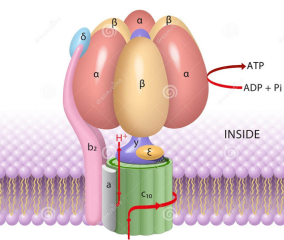
Transforming Health with Every Drop.
At Light Water Healthcare Limited, we harness the transformative power of Deuterium Depleted Water to enhance lives. Our water promotes wellness, supports treatments, and boosts energy. Discover the significant impact of water that truly makes a difference.
275
MITOCHONDRIAL DISEASES
90
SCIENTIFIC PAPERS
4
DEUTERIUM LEVELS
1,000,000,000
TIMES BETTER THAN CURRENT WATER PURIFIERS

ABOUT LIGHT WATER
What is Deuterium Depleted Water?
Light Water, also known as Deuterium Depleted Water (DDW), has a lower concentration of Deuterium, a naturally occurring heavy isotope of Hydrogen.
Light Water promotes better health and vitality by reducing the Deuterium content. This innovative water solution supports wellness, enhances treatments, and improves overall energy levels, making it a transformative addition to a healthy lifestyle.

Alteration of Mitochondrial Activity

Distortion of DNA

Structural changes in DNA

Damaged Nanomotors
How Deuterium Destroys Our Body?
Deuterium, found in the water within our bodies, can have harmful effects. It distorts DNA and disrupts mitochondrial function, hindering our cell’s ability to produce energy. This leads to reduced vitality and accelerated aging.
- Distortion of DNA: Deuterium can cause structural changes in DNA, leading to mutations and impairing the genetic instructions vital for cell function and replication. This distortion contributes to the development of various diseases, including cancer.
- Alteration of Mitochondrial Activity: Mitochondria generate energy for our cells using tiny motors powered by Hydrogen ions. When these Hydrogen ions are replaced with Deuterium (a heavy isotope of Hydrogen), the motors splutter, slow down, and eventually get jammed. This reduces energy production and damages the mitochondrial activity.
What are the benefits of Deuterium Depleted Water?
01.
Cancer Treatment
Supports cancer treatment in the body, by improving cellular health and enhancing the effectiveness of traditional therapies.
02.
Mitochondrial Diseases
It helps prevent and treat up to 275 mitochondrial diseases by improving energy production and stabilizing cellular function.
03.
Heart Health
It helps manage hypertension by lowering blood pressure, improving blood flow, and supporting heart health.
04.
Diabetes
Aids diabetes management by reducing blood glucose levels and glycosuria leading to better overall diabetes control.
05.
Longevity
Promotes longevity, improving cellular function, enhancing energy production, and slowing aging for a healthier, longer life.
06.
Mental & physical well-being
It enhances mental and physical well-being in the body, by boosting energy, improving mood, and supporting overall health.
Tailored Deuterium Depleted Water for Your Health Needs
Light Water Healthcare Limited offers Deuterium Depleted water in various concentrations. Each concentration is tailored to meet your specific health needs, providing options for those seeking to optimize their well-being through reduced deuterium levels.

Water is Everything
At Light Water Healthcare Limited, our Deuterium Depleted Water
is designed to optimize your health. Experience the benefits today.
